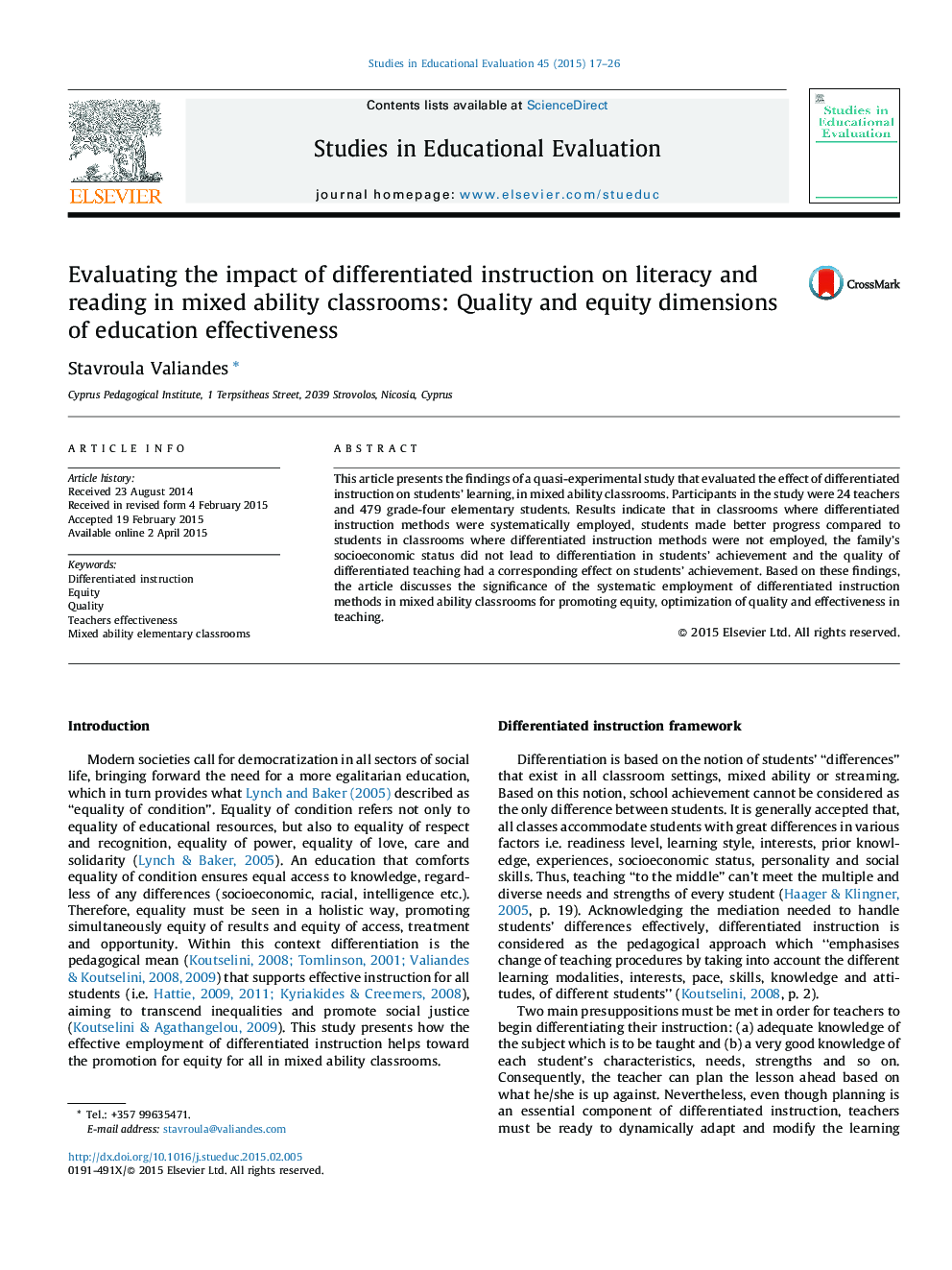| Article ID | Journal | Published Year | Pages | File Type |
|---|---|---|---|---|
| 372610 | Studies in Educational Evaluation | 2015 | 10 Pages |
•Differentiated instruction (DI) has an impact on students’ learning.•The quality of DI had a corresponding effect on students’ achievement.•DI in mixed ability classrooms can lead to equal opportunities for improvement.•DI can lead to the optimization of the quality and effectiveness of teaching.
This article presents the findings of a quasi-experimental study that evaluated the effect of differentiated instruction on students’ learning, in mixed ability classrooms. Participants in the study were 24 teachers and 479 grade-four elementary students. Results indicate that in classrooms where differentiated instruction methods were systematically employed, students made better progress compared to students in classrooms where differentiated instruction methods were not employed, the family's socioeconomic status did not lead to differentiation in students’ achievement and the quality of differentiated teaching had a corresponding effect on students’ achievement. Based on these findings, the article discusses the significance of the systematic employment of differentiated instruction methods in mixed ability classrooms for promoting equity, optimization of quality and effectiveness in teaching.
